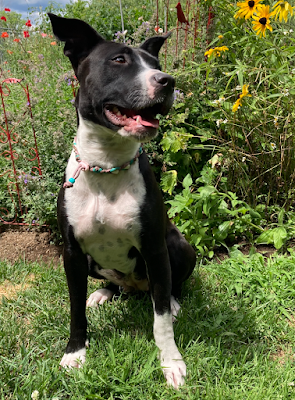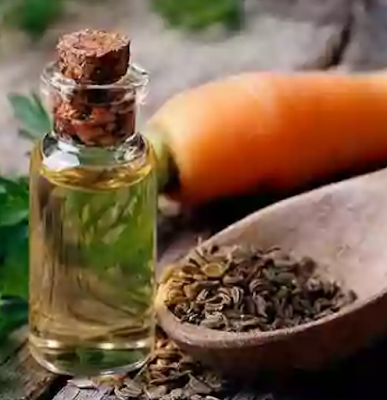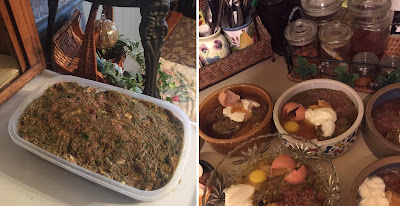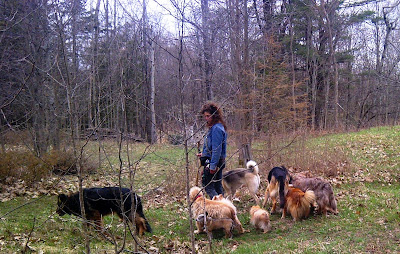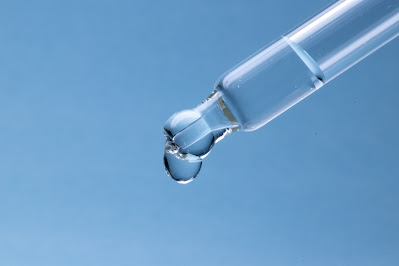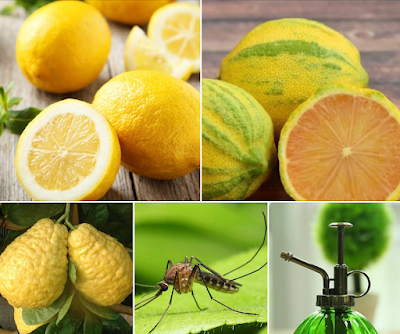Protect Your Dog Naturally From Sunburns to Nose, Skin and Ears With These Foods, Supplements and DIY Sunscreens
★ 5 min read
In this article:
- Sun Burn? With All That Fur? Yes.
- Dogs Most at Risk for Sunburn
- Which Dogs Are Most At Risk?
- UVA, UVB Exposure, Diet and Vulnerability
- Natural Sun Protection Dietary Support
- Lycopene
- Extensive Health Benefits
- Learn More About Lycopene
- Natural Topical Sunscreen Protection for Dogs
- Simple, Pure Oils With Excellent SPF Protection
- Essential Oil Sunscreen Recipe for Dogs
- Cautions
1.0 Sun Burn? With All That Fur? Yes.
With all that fur? Yes. It's true dogs can get sun burned. Ultraviolet rays can cause damage to your dog's skin and eyes. Even if your dog has thick fur, your dog's nose and eyes are still vulnerable to UV damage.
Canine sun burns can be just as painful
and damaging as sun burns experienced by us humans.
In this article, you'll learn:
- How to assess your dog's personal risk.
- How to select and use natural dietary and topical aids to ensure maximum benefit from the sun's rays and avoid damage.
2.0 Dogs Most at Risk for Sunburn
2.1 Which Dogs Are Most At Risk?
Dogs most at risk of experiencing UV damage to skin are:
- Dogs with short hair
- Dog with little or no hair
- Dogs that spend a lot of time in or on the water (e.g. on the beach, swimming, in a boat).
However, dogs with a thick fur coat are also at risk for UVA damage to:
- Ears
- Eyes
- Nose
2.2 UVA, UVB Expose, Diet and Vulnerability
2.2.1 UVA and Sunburn
Your
dog’s diet and genetics help determine susceptibility to sun burn.
Some dogs are more sensitive to the damaging effects of the sun’s UVA
rays. However, a poor diet can also have a negative impact on the body's natural sunburn prevention mechanisms.
2.2.2 Health Supporting UVB Absorption
Most
commercial made-for-pet sunscreens contain a variety of health damaging,
toxic, carcinogenic ingredients.
Some of these ingredients also block the skin's ability to absorb health supporting UVB rays.
Learn more about ingredients to avoid in commercial sun protection products for dogs, go to this article.
2.2.3 Protect Your Dog From UVA Damage
The best plan of action to protect your dog from the damaging effects of
the sun’s UVA rays:
- Include UVA protective foods in your dog's diet.
- If necessary, depending on your dog's risk factors, use a natural sun screen.
3.0 Natural Sun Protection Dietary Support For Your Dog
3.1 Lycopene
Lycopene is a powerful natural phytonutrient and antioxidant present in some fruit and vegetables. Lycopene, a member of the
carotenoid family is a red pigment that gives fruit and vegetables their
red color.
Lycopene cannot be made by your dog's body. Lycopene must be obtained by consuming lycopene rich plant materials.
3.2 Extensive Health Benefits for Your Dog
In addition to acting as a natural sunscreen, lycopene also helps prevent and treat:
- Chronic disease.
- UV damage to eyes, including cataracts and macular degeneration.
- Inflammatory health issues.
- Toxic exposures.
Learn more about Lycopene for your dog:
- Health benefits.
- List of lycopene rich foods for dogs.
- What to avoid and why.
- How to include lycopene rich foods in your dog's diet.
Go to this article.
4.0 Natural Topical
Sunscreen Protection for Dogs
4.1 Simple, Pure Oils with Excellent SPF Protection
Use one of these pure natural
dog safe oils that offer protection targeted to screen out most of the sun’s harmful UVA rays.
These oils offer protection for relatively reasonable periods of time (not all day exposure) without causing the
serious side effects of most commercial sunscreens.
Natural oils also:
- Nourish the skin.
- Allow beneficial UVB rays through to support production of vitamin D.
Another advantage of pure natural sun screen oils – unlike the commercial chemical-based
sunscreens, if your dog licks her skin or fur the natural oils are safe and supportive of overall health.
4.1.1 Carrot
Seed Oil
Carrot seed oil has a very high rating for sun protection, between “30”
SPF and “38” SPF.
As well, carrot seed oil is rich in skin supporting vitamins and antioxidants
including carotene and vitamin A.
This oil is of particular therapeutic value
for dogs with skin issues.
The only caution:
Carrot seed oil can have an
orange tinge.
For dogs with white or light fur and skin, temporary color
transfer may be occur while the oil is on the skin.
4.1.2 Red
Raspberry Seed Oil
Red
raspberry seed oil has an excellent SPF rating – estimated at 30 SPF to 50 SPF.
This oil
is also rich in vitamin E making it a good choice for dogs that are prone to skin
issues. Vitamin E is also a natural preservative – this oil is naturally
resistant to rancidity.
Red raspberry oil also has excellent anti-inflammatory
properties due to its high content of vitamin A and alpha linolenic acid.
4.1.3 Instructions for Use
Apply a thin layer of the oil to your dog's vulnerable areas.
- If your dog is outside for many hours apply the oil at least two times per day. If your dog's nose is prone to sunburn apply the oil three to four times per day to the nose.
- If your dog gets wet (swimming, playing in the sprinkler, etc.) you'll need to reapply the oil.
Apply to other vulnerable areas such as:
- Inner ear flaps.
- Edges of outer ear flap.
- Underbelly.
- Areas that are missing fur, or where fur is thin.
Storage
- Store the oil in a cool, dark, cupboard, or refrigerate.
4.2 Simple Essential
Oil Sunscreen Recipe for Dogs
Make your own essential oil sunscreen with this simple recipe.
Some essential oils have excellent
sun-blocking properties and provide anti-inflammatory support.
To
make your own essential oil sunscreen you will need dog safe:
- Organic carrier oil.
- High quality therapeutic essential oil.
4.2.1 Choose the Essential Oil
Select from:
- Lavender Essential Oil, or;
- Roman Chamomile Essential Oil
4.2.2 Choose the Carrier Oil:
Select from:
- Carrot seed oil
- Coconut oil
- Jojoba oil
- Raspberry seed oil
4.2.3 Preparation Instructions
- Add 5 to 10 drops of essential oil for every ounce of carrier oil.
- Thoroughly mix the carrier oil with the essential oil.
- The sunscreen is ready for use.
4.2.4 Use and Storage
- Apply sparingly.
- Avoid getting the mixture in your dog’s eyes.
- Reapply as needed throughout the day.
- Store the sunscreen in a cool, dark cupboard.
5.0 Cautions
- Don’t use essential oil sun-screen on puppies younger than 8 weeks of age.
Holistic Diet, Nutrition, Wellness Services Tailored to Your Individual Dog and Cat
For information about my holistic diet, nutrition, wellness services visit my:
Maintain good health | Address acute and chronic health issues | Pre and post surgery support and recovery
My holistic wellness services are available worldwide via video consultation.
🌎 USA | Canada | UK | Europe | Australia | New Zealand | Asia | South and Central America | Africa | UAE
📱 FaceTime | Facebook | Skype | WhatsApp
Holistic Behavioral Services For Your Dog
For information about my holistic behavioral services visit my:
For dogs of all ages, sizes and breeds
My holistic behavioral services are available locally in-person and worldwide via video session.
🌎 USA | Canada | UK | Europe | Australia | New Zealand | Asia | South and Central America | Africa | UAE
📱 FaceTime | Facebook | Skype | WhatsApp
Affiliations to Companies
✓ None.
✓ I don't sell food or supplements.
✓ I'm not aligned with any companies.
✓ None.
✓ I don't sell food or supplements.
✓ I'm not aligned with any companies.
Article and graphics by Karen Rosenfeld

